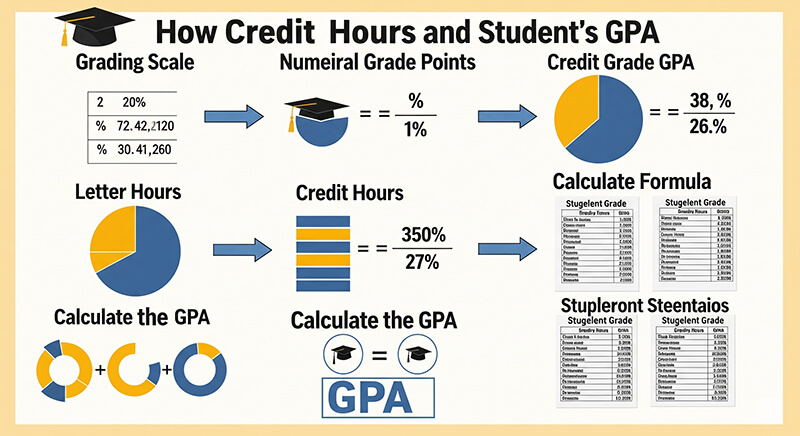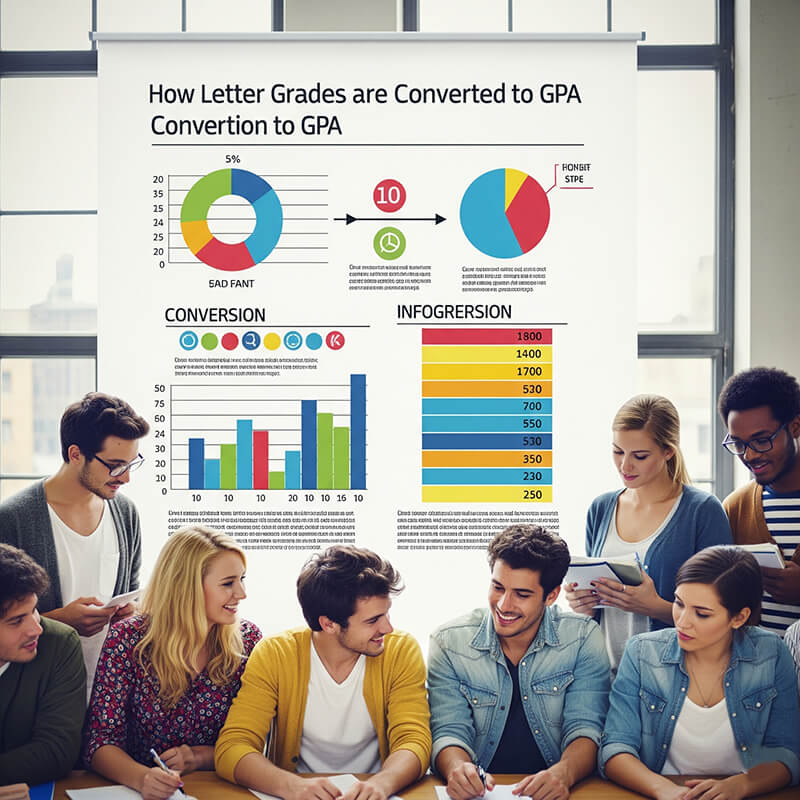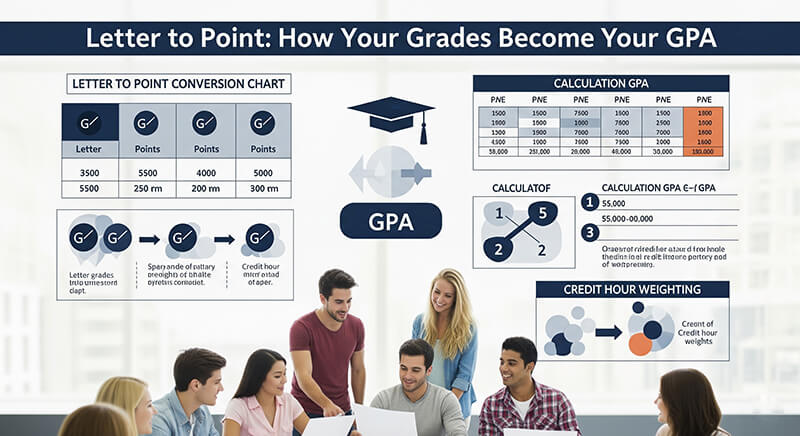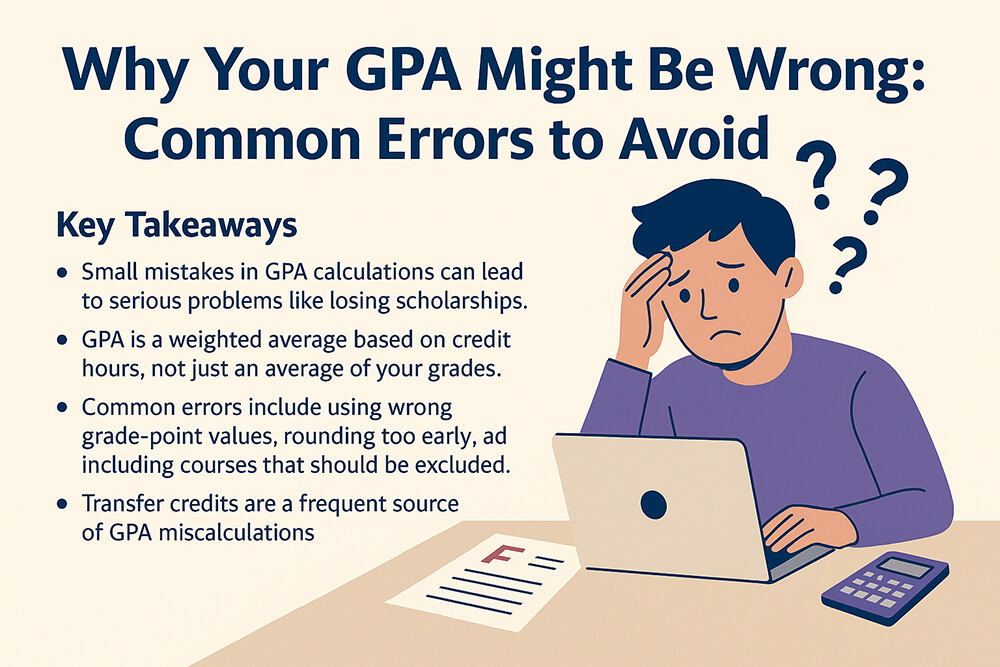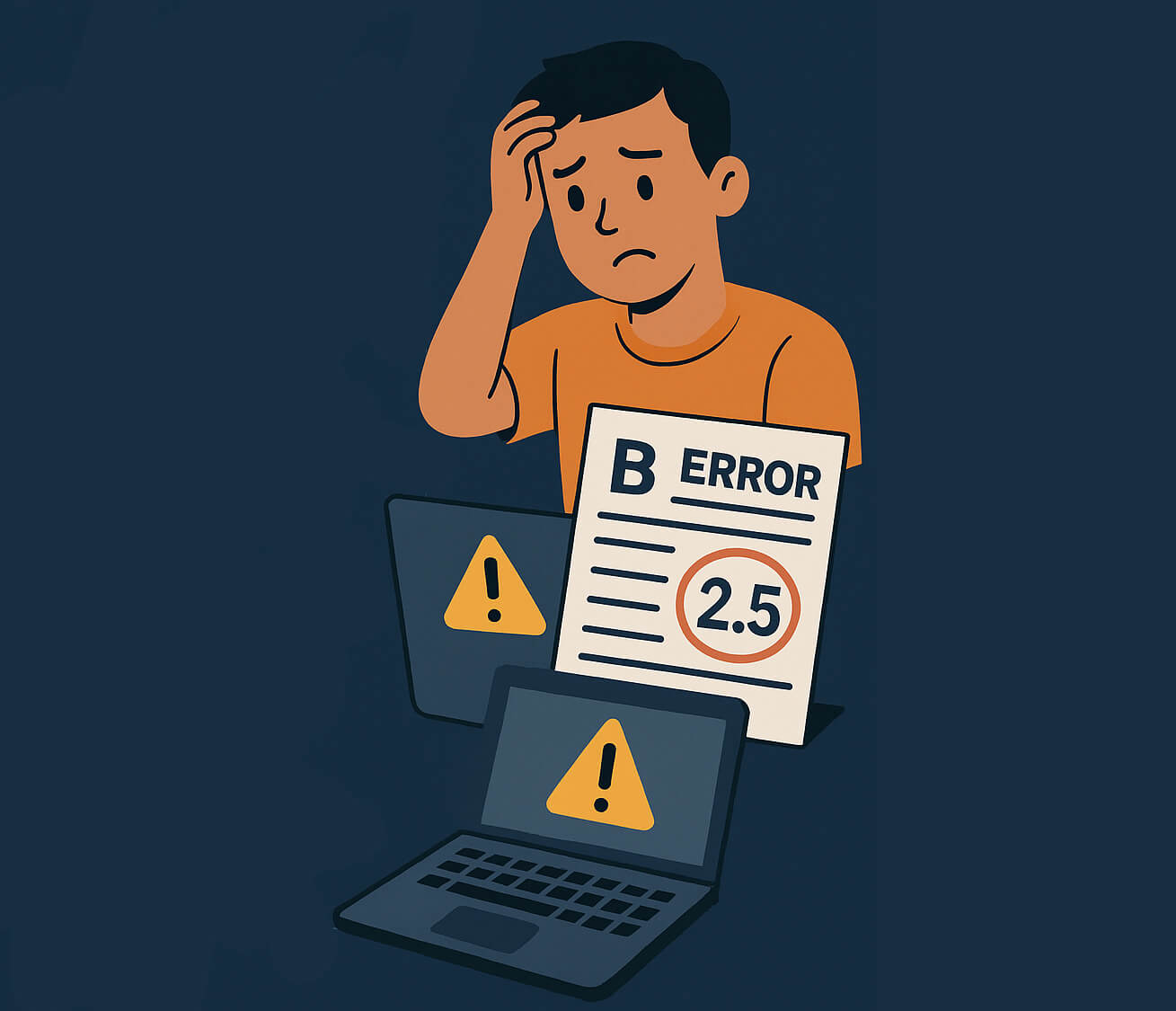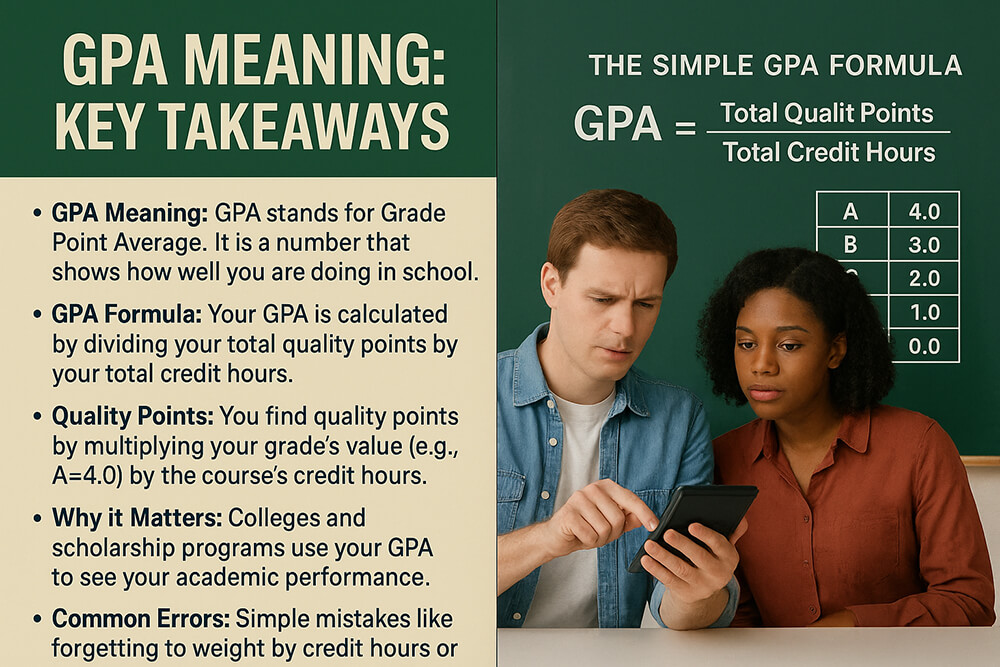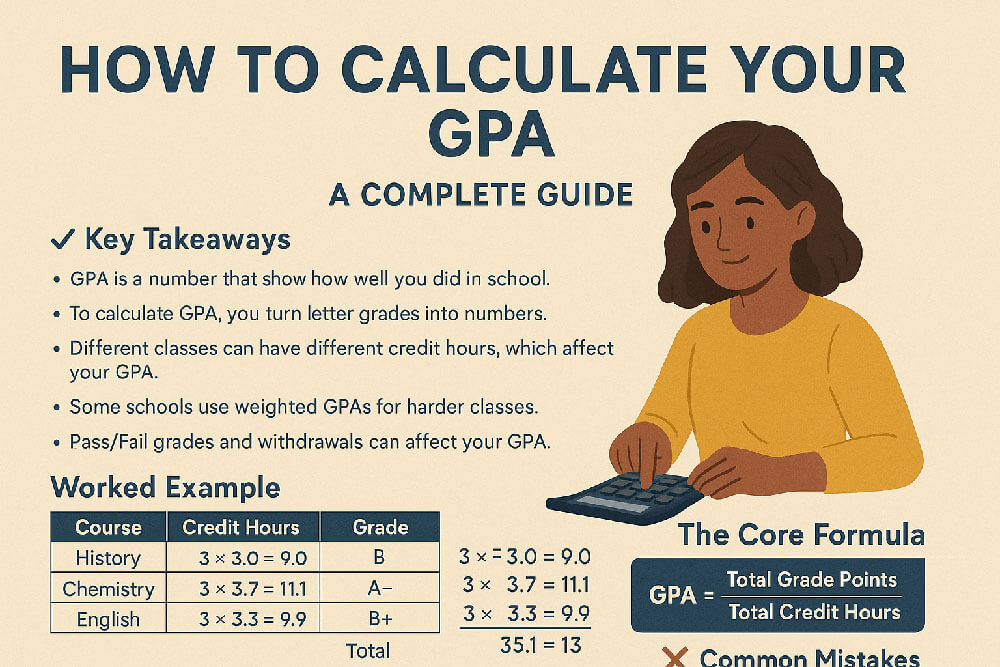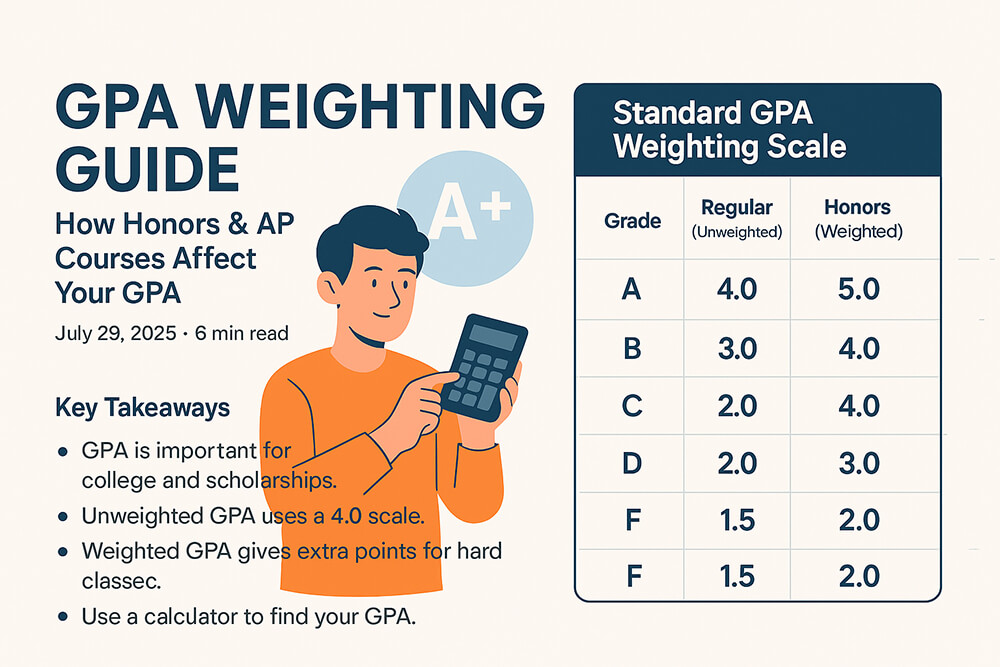Key Takeaways:
- A 5.0 scale GPA gives extra points for hard classes like AP and Honors.
- You can figure out your weighted GPA by adding up points for each class.
- www.thegpacalculator.com has a calculator to help you.
- Colleges look at your weighted GPA to see how well you handle tough classes.
- Knowing your school's rules for GPA can help you plan your classes.
What is a 5.0 Scale GPA?
A 5.0 scale GPA gives you more points for taking hard classes. If you get an A in a regular class, it's worth 4.0 points. But if you get an A in an AP class, it's worth 5.0 points. This shows colleges you can handle tough work.
Honors classes also get extra points. An A in an honors class might be worth 4.5 points. This helps your GPA if you take hard classes. The GPA weighting guide for honors and AP can give you more information.
How to Calculate a Weighted GPA on a 5.0 Scale
To figure out your weighted GPA, you need to add up the points for each class. First, give each grade a point value. A is 4.0, B is 3.0, and so on. Then, add extra points for honors and AP classes.
Next, multiply the points by the number of credits for the class. Add up all the points and divide by the total credits. This gives you your weighted GPA. You can check out the GPA formula guide for help.
Example of Weighted GPA Calculation
Let's say you get an A in English (3 credits), a B in AP Calculus (4 credits), an A in Honors Biology (3 credits), and an A in History (3 credits).
- English: 4.0 x 3 = 12.0
- AP Calculus: 4.0 x 4 = 16.0 (B gets weighted to 4.0)
- Honors Biology: 4.5 x 3 = 13.5
- History: 4.0 x 3 = 12.0
Add them up: 12.0 + 16.0 + 13.5 + 12.0 = 53.5. Divide by total credits (13): 53.5 / 13 = 4.12. Your weighted GPA is 4.12. The quality points vs gpa explained page can help you understand this better.
Variations in Weighting Systems
Not all schools use the same system. Some schools use a 4.5 scale or a 6.0 scale. Some schools don't give extra points at all.
It's important to know your school's rules. Ask your counselor or check the school website. You can also use the calculator on www.thegpacalculator.com to customize the weights. The letter to point GPA conversion guide can help you convert your grades.
Using the 5.0 Scale Calculator
The calculator on www.thegpacalculator.com makes it easy to figure out your GPA. You put in your grades, credits, and course types. The calculator does the rest.
It shows you both your weighted and unweighted GPAs. You can even try out different scenarios to see how your GPA might change. Also, be aware of how pass/fail grades impact your gpa.
Example of Using the Calculator
If you put in the same grades as before, the calculator will show you a weighted GPA of 4.12 and an unweighted GPA of 3.69. This helps you see how much the hard classes boost your GPA.
This tool can help you track your progress and plan your classes. Make sure you avoid common GPA calculation errors.
Why Weighted GPA Matters for College Admissions
Colleges look at your weighted GPA to see if you can handle hard classes. They want to know if you're ready for college-level work.
Many colleges will recalculate your GPA to compare students fairly. They might only look at certain classes or use their own weighting system. It's also important to know how school districts calculate gpa.
Data on GPA and College Admissions
Top colleges like Harvard and Yale have average weighted GPAs of 4.1 or higher. More and more students are taking AP classes. A good weighted GPA can help you stand out.
But colleges also look at other things, like your essays and activities. It's important to have good grades in all your classes. You can calculate GPA to get an idea of where you stand.
Tips for Students
- Know your school's policy on weighting.
- Use the calculator to track your GPA.
- Take hard classes where you can do well.
- Be ready for colleges to recalculate your GPA.
It's also a good idea to understand credit hour weighting gpa guide to make the most of your courses.
Conclusion
The 5.0 scale calculator on www.thegpacalculator.com is a helpful tool. It can help you plan your classes and track your progress. A good weighted GPA can help you get into the college of your dreams.
Remember to check out the weighted vs unweighted gpa page to understand the difference.
Frequently Asked Questions (FAQ)
What is the difference between a weighted and unweighted GPA?
A weighted GPA gives extra points for hard classes. An unweighted GPA treats all classes the same.
How do I know if my school uses a 5.0 scale?
Ask your counselor or check your school's website.
Can colleges see my weighted GPA?
Yes, colleges can see your weighted GPA. But they may recalculate it.
Is a 4.0 weighted GPA good?
A 4.0 weighted GPA is good, but top colleges want higher.
How can I improve my weighted GPA?
Take honors and AP classes and get good grades.
What are common myths about weighted GPAs?
Read the weighted GPA myths debunked to find out.
How does GPA inflation affect my chances?
Learn about gpa inflation vs deflation to stay informed.

